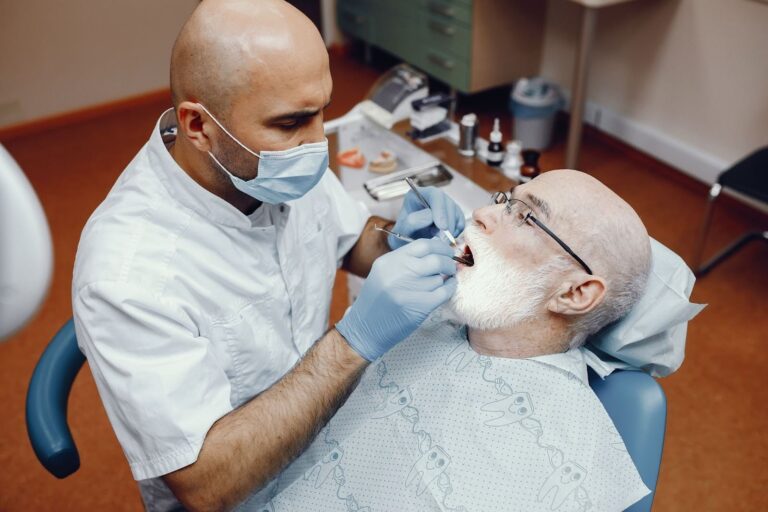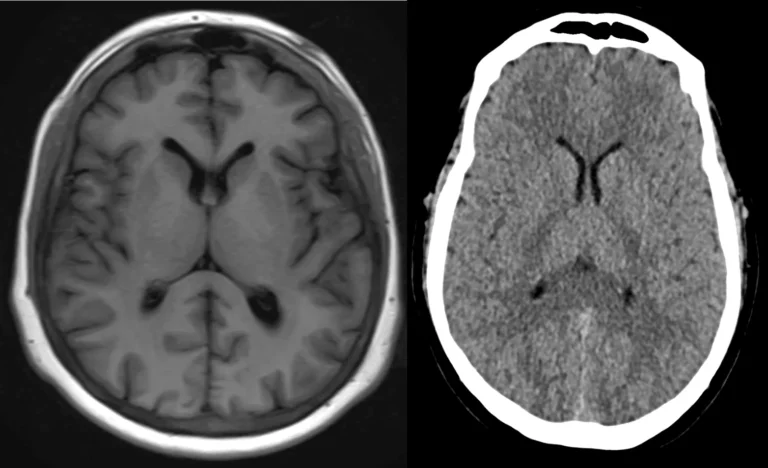The Surprising Connection Between Mouthwash and Gut Health
Introduction
When most people think of mouthwash, they imagine minty freshness, cleaner breath, and improved oral hygiene. But what if that swish of antiseptic liquid each morning was doing more than freshening your breath—what if it was actually affecting your gut health?
Recent research has uncovered fascinating links between oral care habits and the microbiome of your digestive system. It turns out the bacteria in your mouth play a crucial role in maintaining the balance of your gut, and the way we use mouthwash may directly influence this connection.
This article dives deep into how mouthwash interacts with your gut microbiome, the potential risks of overuse, and how to choose natural mouthwash options that support whole-body wellness.
Understanding the Oral–Gut Axis
The human body is an interconnected ecosystem. The mouth is the gateway to your digestive tract, and the communities of bacteria that live there—known as the oral microbiome—are essential for digestion, immunity, and overall health.
When you swallow, trillions of microbes from your mouth make their way into your gut. This transfer isn’t necessarily harmful; in fact, it’s part of a natural process that helps maintain a balanced gut microbiome. However, if oral bacteria are disrupted—say, through excessive use of harsh antimicrobial mouthwashes—it can throw the entire system off balance.
Scientists call this relationship the oral–gut axis, emphasizing that what happens in the mouth doesn’t stay in the mouth.
The Role of Mouthwash in Oral Health
Mouthwash has long been promoted as a key part of daily oral hygiene. It’s often used to:
- Kill harmful bacteria that cause bad breath (halitosis)
- Reduce plaque and gingivitis
- Freshen breath quickly
- Prevent tooth decay (in fluoride mouthwashes)
While these are valid benefits, not all mouthwashes are created equal. Conventional mouthwashes often contain alcohol, chlorhexidine, triclosan, or other strong antiseptics. These ingredients are highly effective at killing bacteria—but they kill both good and bad bacteria indiscriminately.
This leads to what experts call a microbial imbalance in the mouth—essentially a “scorched earth” effect that can have downstream impacts on your digestive system.
How Mouthwash Affects Gut Health
1. Eliminates Beneficial Oral Bacteria
Many commercial mouthwashes are designed to kill up to 99.9% of germs. While that sounds impressive, your mouth actually needs a variety of bacteria to stay healthy. Some bacteria are responsible for converting dietary nitrates (found in vegetables like spinach and beets) into nitric oxide, a compound that helps regulate blood pressure and supports vascular health.
When these beneficial bacteria are wiped out, your nitric oxide levels can drop, leading to problems like high blood pressure and reduced nutrient absorption in the gut.
2. Disrupts the Gut Microbiome
The gut microbiome—a complex community of bacteria, fungi, and other microorganisms—plays a major role in digestion, immune function, and even mood regulation. When mouthwash disrupts oral bacteria, it can send an altered microbial mix into your digestive tract. This shift can lead to:
- Digestive discomfort (bloating, irregularity)
- Weakened immunity
- Increased inflammation
- Poor nutrient absorption
A 2017 study published in Frontiers in Cellular and Infection Microbiology found that using antiseptic mouthwash twice daily could significantly alter the oral microbiome and lead to downstream effects in the gut microbiome.
3. May Increase Risk of Metabolic Disorders
Surprisingly, excessive mouthwash use has been linked to metabolic changes. A study from the American Journal of Clinical Nutrition discovered that individuals who used mouthwash twice or more daily had a higher risk of developing type 2 diabetes.
Researchers suggest this could be due to the disruption of nitrate-reducing bacteria in the mouth, which normally help regulate insulin sensitivity and glucose metabolism.
4. Interferes with Digestive Enzyme Production
The process of digestion begins in the mouth, where enzymes like amylase start breaking down food. Beneficial oral bacteria help trigger saliva production and balance pH levels. Overuse of antiseptic mouthwash can suppress these natural processes, leading to reduced saliva flow, dry mouth, and impaired digestion.
Why “Natural” Mouthwash Matters
Given these findings, more people are turning toward natural, non-toxic mouthwash alternatives. Natural mouthwashes avoid the harsh chemicals that can strip away your mouth’s protective bacteria.
Key Ingredients in Natural Mouthwash
- Colloidal Silver – Known for its gentle antibacterial properties, colloidal silver helps maintain oral hygiene without destroying beneficial bacteria.
- Nano-Hydroxyapatite – Supports enamel remineralization naturally, helping protect teeth while remaining biocompatible.
- Essential Oils (like peppermint, spearmint, clove, or tea tree) – Offer antimicrobial benefits while supporting fresh breath.
- Coconut Oil – Promotes oil pulling effects, reducing harmful bacteria and balancing the oral microbiome.
- Aloe Vera or Herbal Extracts – Soothe gums and promote healing without irritation.
Unlike alcohol-based mouthwashes, these natural ingredients clean without sterilizing your mouth’s delicate ecosystem.
The Mouth–Gut–Brain Connection
Emerging research suggests that the connection between your mouth and gut extends to your brain as well. Scientists have identified a gut-brain axis—a communication pathway linking your digestive system to your central nervous system. Interestingly, this connection begins in the mouth.
Here’s how it works:
- Oral bacteria influence the types of signals sent to the gut.
- The gut microbiome, in turn, affects neurotransmitter production (like serotonin and dopamine).
- This impacts mood, cognition, and overall well-being.
Therefore, protecting your oral microbiome by using natural mouthwash can indirectly support mental health, immunity, and energy levels.
Balancing Oral and Gut Health Naturally
Here are science-backed ways to maintain both a clean mouth and a healthy gut:
1. Choose Alcohol-Free Mouthwash
Alcohol dries out the mouth and kills good bacteria. Opt for a natural, alcohol-free mouthwash that maintains microbial balance.
2. Brush and Floss Mindfully
Brushing twice daily and flossing once a day reduces harmful bacteria without over-sanitizing your mouth.
3. Eat a Probiotic-Rich Diet
Foods like yogurt, kefir, kimchi, sauerkraut, and kombucha replenish gut bacteria and indirectly support oral microbiota.
4. Limit Sugary and Processed Foods
Sugar feeds harmful bacteria in both the mouth and gut, increasing the risk of cavities and inflammation.
5. Stay Hydrated
Saliva is your mouth’s natural defense mechanism. Drink plenty of water to encourage saliva flow and support digestion.
6. Try Oil Pulling
Swishing coconut or sesame oil in your mouth for 10–15 minutes can reduce bad bacteria and balance oral flora naturally.
The Future of Oral Care: Microbiome-Friendly Mouthwash
The oral care industry is undergoing a transformation. As more people learn about the connection between oral and gut health, microbiome-friendly products are emerging. These formulations aim to balance bacteria instead of eliminating them completely.
One excellent example of this new generation of oral care is Simply Silver Mouthwash. Created by a dental hygienist, it combines colloidal silver, nano-hydroxyapatite, and essential oils to promote fresh breath and enamel strength—without harsh chemicals or alcohol.
Natural brands like Simply Silver are helping people rethink oral hygiene as part of whole-body wellness, aligning perfectly with the principles of holistic health and even community nursing initiatives that emphasize preventive care and natural living.
Signs Your Mouthwash Might Be Hurting Your Gut
If you’re unsure whether your current mouthwash is supporting or harming your body, look out for these signs:
- Persistent dry mouth even after rinsing
- Increased sensitivity or gum irritation
- Digestive issues (bloating, constipation, or acid reflux)
- Frequent bad breath despite good hygiene
- Metallic taste or loss of taste after mouthwash use
If any of these symptoms sound familiar, it may be time to switch to a more natural, microbiome-safe formula.
FAQs: Mouthwash and Gut Health
1. Can mouthwash cause stomach problems?
Yes, overuse of antiseptic mouthwash can alter your oral microbiome, which in turn affects the gut. This imbalance can lead to indigestion or bloating.
2. How often should I use mouthwash?
Most dental professionals recommend using mouthwash once daily—preferably before bedtime. Using it multiple times a day may increase the risk of bacterial imbalance.
3. Is natural mouthwash as effective as chemical mouthwash?
Yes, many natural formulations clean effectively without the side effects of alcohol or synthetic antibacterial agents. Ingredients like colloidal silver, peppermint, and nano-hydroxyapatite offer gentle yet powerful cleaning benefits.
4. Does mouthwash affect probiotics?
Yes. Harsh antibacterial mouthwashes can kill probiotics in your mouth that contribute to healthy digestion and immune function.
5. How long should I wait to eat after using mouthwash?
It’s best to wait at least 30 minutes after rinsing to allow the active ingredients to work and avoid washing them away with food or drink.
Conclusion
The connection between mouthwash and gut health is a reminder that our bodies are intricate ecosystems. Every choice—from the toothpaste you use to the rinse you swish—has ripple effects throughout your system.
Traditional mouthwashes may leave your mouth feeling fresh, but they can also disrupt the delicate bacterial balance that supports digestion, immunity, and overall wellness. Natural alternatives like Simply Silver Mouthwash take a more holistic approach—protecting your oral microbiome while promoting long-term gut health.If you want fresh breath and a happy gut, it’s time to ditch the harsh chemicals and embrace microbiome-friendly oral care. Your mouth, gut, and entire body will thank you for it.
Keep an eye for more latest news & updates on Well Health Organic!






